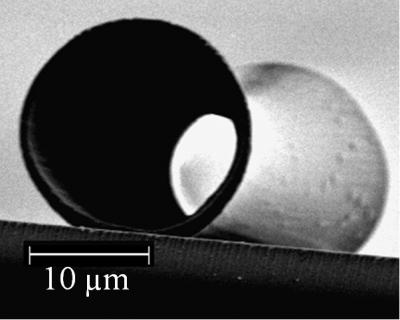Harnessing General Relativity to the Study of Light Propagation in 3D Nanometric Sturctures
Ph.D Students: Yossi Kabessa
In this project we propose a completely new paradigm for nanophotonics: Nanophotonics in 3D Curved Spaces.
In general, nanophotonics is based on the ability to construct objects with specifically designed spatial distribution of the refractive index (RI). This is accomplished by employing fabrication techniques enabling the construction of objects with nanometric features, rendering the spatial distribution of the RI to be determined by the designed architectures rather than exclusively by their material composition. Hitherto nanophotonic devices are designed and fabricated in planar settings, similar to electronic integrated circuits. In this project, we design and construct nanophotonic structures and devices in a full three-dimensional (3D) setting. The project combines design principles that are inspired by concepts imported from the realm of general relativity, with the unique capability of the Nanoscribe 3D nanoprinting technique to construct 3D complex structures of nanometric features.
As an example to our approach we demonstrated an optical analogue to the Schwarzschild metric and study the behavior of electromagnetic waves near the horizon of a black hole. We study the behavior of light on the surface of a paraboloid that can be mapped to the Schwarzschild space outside the black (or white) hole horizon.
 |
 |
We observed that the light beam, instead of broadening, evolves to a narrower beam while propagating toward the event horizon of the black hole - due to the change in the curvature of surface effects. In addition, there are signs for a tunneling effect through the black hole horizon, which for specific parameters allows the passage of leaky modes that transform to propagating modes after passing the horizon.
 |
 |
 |
| Fabrication | Simulation | Experiment |
This research is done in collaboration with Rivka Bekenstein and Prof. Mordechai Segev from the Technion.

